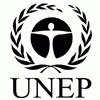The United Nations Environment Programme (UNEP) is the leading global environmental authority that sets the global environmental agenda, promotes the coherent implementation of the environmental dimension of sustainable development within the United Nations system and serves as an authoritative advocate for the global environment.
UNEP work encompasses:
- Assessing global, regional and national environmental conditions and trends
- Developing international and national environmental instruments
- Strengthening institutions for the wise management of the environment
Mission
"To provide leadership and encourage partnership in caring for the environment by inspiring, informing, and enabling nations and peoples to improve their quality of life without compromising that of future generations."
Members:
Resources
Displaying 6 - 10 of 106Promoting the sustainability of terrestrial ecosystems and halting desertification, land degradation and biodiversity loss.
Facts and Figures: ➡ Every minute, 23 hectares of arable land are lost due to drought and desertification. ➡ Over the last two decades, approximately 20 per cent of the Earth’s vegetated surface has shown persistent declining trends in productivity, mainly due to unsustainable land and water use and management practices. ➡ Every year, 13 million hectares of forest are lost that are home to more than 80 per cent of all land-based species and which provide livelihood to 1.6 billion people.
Mineral Resource Governance in the 21st Century: Gearing extractive industries towards sustainable
development.
Resources, including minerals and metals, underpin the world’s economies for almost all sectors, providing crucial raw materials for their industrial processes. Despite efforts to decouple economies from resource use towards a circular economy, demand for extractive resources will continue to grow on the back of emerging economies. The report maps existing international governance frameworks and initiatives which have overlapping subsets that focus on delivering the 2030 Global Agenda for Sustainable Development.
Legislative approaches to sustainable agriculture and natural resources governance
Influenced by international trends, as well as in response to population, climate, resource and development needs, the standards, norms, mechanisms and incentives in natural resources law at the national level have evolved in recent years. Natural resources laws are influenced by developments in the international arena, either through international treaties that are binding or through ‘soft law’ instruments that are not legally binding but nevertheless have widespread adherence among governments, or that provide principles that guide and shape national legislation.
Droughts in the Anthropocene
This publication was produced as part of the digital interactive exhibition Droughts in the Anthropocene, prepared for the fortieth session of the UNESCO General Conference. Droughts in the Anthropocene features fifteen case studies from around the world showcasing the social, environmental and cultural impacts of droughts and water scarcity. It highlights solutions offered by collaboration between scientists and local communities, and the important work of UNESCO IHP and partners in bridging science with society and policymakers to better address the impact of droughts.
Droughts in the Anthropocene
This publication was produced as part of the digital interactive exhibition Droughts in the Anthropocene, prepared for the fortieth session of the UNESCO General Conference. Droughts in the Anthropocene features fifteen case studies from around the world showcasing the social, environmental and cultural impacts of droughts and water scarcity. It highlights solutions offered by collaboration between scientists and local communities, and the important work of UNESCO IHP and partners in bridging science with society and policymakers to better address the impact of droughts.


